Search this site
History of Pre-Mixed and Frozen (PMF) Adhesives
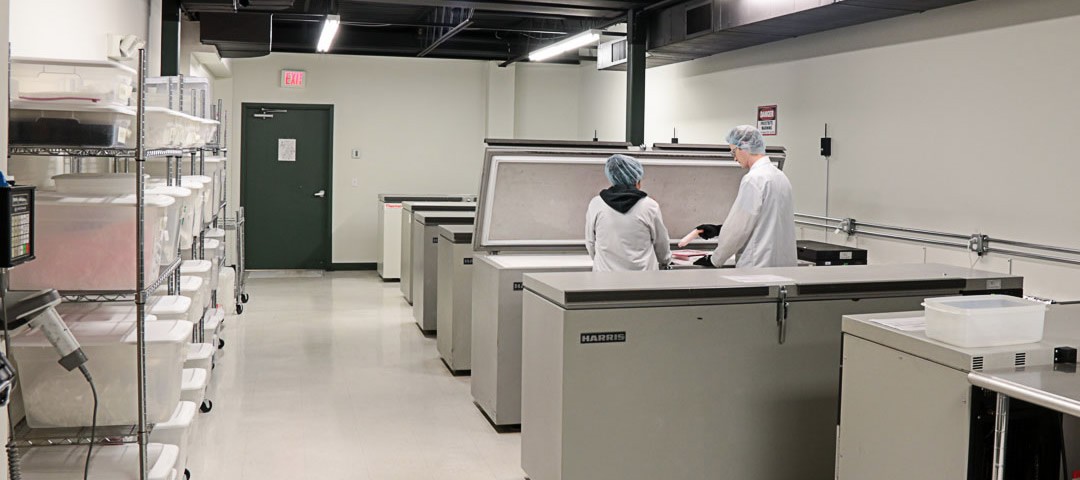
After they’re flash frozen, Appli-Tec stores PMF materials at correct temperatures to ensure maximum shelf-life retention.
Pre-mixed and frozen adhesives (also referred to as “fromix” and “freeze pak”) started with Hughes Electronics Defense Division post WWII. One of the first applications used polysulfide-based materials related to aircraft fuel systems.
PMF adhesives became a commercial product in the early 1960s. Since then, PMF adhesives have gained wide acceptance. Today, industry leaders in market sectors such as Aerospace and Defense, use PMF adhesives for high reliability electronic and aerospace applications.
PMF products in the supply chain
PMF formulations are used in a variety of applications, ranging from automated bonding processes, staking of materials for secondary assembly processes, high shear strength bonding, hermetic encapsulation, thermal management, electrical and/or thermal conductivity or isolation, and many others.
As electronics and packaging engineers continue to develop ever-more densely packaged electronic assemblies, the need for highly engineered adhesives, encapsulants and coatings becomes critical to the function of the finished assemblies.
These highly engineered formulations are often custom-developed materials that consist of two, three or more discrete chemical materials that must be precisely measured, processed, blended, and packaged prior to use.
Precision-mixed and frozen materials offer manufacturers a reliable source of “known-good” materials that can be sourced, stored at ultra-low temperatures, and dispensed for a year or more.
Material options
A variety of materials and chemistries can be provided in a precision mixed and frozen format, ranging from simple mixing, packaging and cryogenic processing of widely used industry standard materials (e.g., 3M 2216 epoxy), to custom-formulated, application-specific materials engineered for an exact application or a specific range of properties.
Between those two extremes lies a wide range of modified or semi-custom materials that offer modest alterations to well-known, commonly used materials.
The addition of functional fillers often adds to the number of mixed components and thus the complexity of the compounding process. Some of the characteristics that are fairly easily engineered for application-specific properties include:
- Controlled flow—increase or decrease of material flowability
- Pot life—extension of in-process working life of the material
- Material cure rate/mechanism—ambient or elevated temperature, UV exposure
- Color—visual customization for process optimization
- Visual verification/traceability—use of UV tracer materials, torque striping, calibration
- Conductivity and resistivity—electrical and/or thermal
Learn More
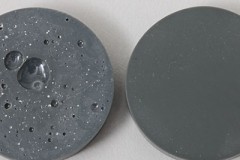 Defect-Free PMF Adhesives
Defect-Free PMF Adhesives
Appli-Tec’s precision mixed and frozen (PMF) adhesives guarantee consistent results.
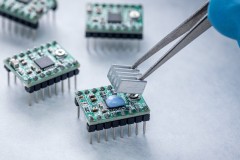 Thermally Conductive Adhesives
Thermally Conductive Adhesives
Adhesives, Epoxies & Urethanes engineered for high-heat electronic applications.
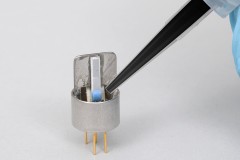 Medical Device Company Turns to PMF Adhesives
Medical Device Company Turns to PMF Adhesives
A medical device manufacturer eliminated in-house mixing by purchasing PMF adhesives from Appli-Tec.
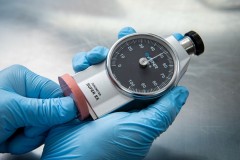 Custom Material Development
Custom Material Development
No matter your application criteria, Appli-Tec can develop a formulation to suit to your needs.
New Applications
I want to discuss my application challenges, order samples, or place a first-time order.
Existing Applications
I need to reorder an existing part number, I have a BOM/Spec.
